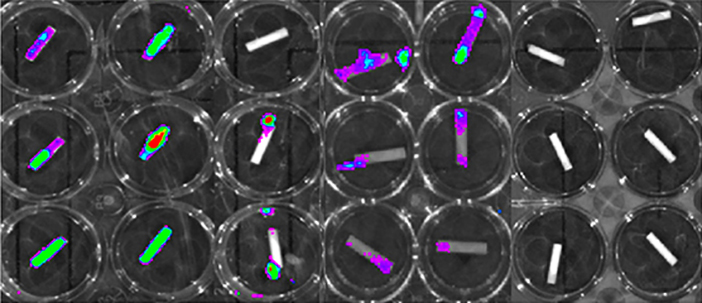To combat deadly bloodstream infections, researchers develop a germ-fighting catheter coating.
Brown University researchers have developed a new antibacterial coating for intravascular catheters that they hope could one day help to prevent catheter-related bloodstream infections, the most common type of hospital-acquired infection.
“These kinds of infections are a major burden for hospitals, health care providers, and most of all for patients,” says Anita Shukla, PhD, an assistant professor of engineering and of molecular pharmacology, physiology, and biotechnology. “We wanted to develop a coating that could both kill planktonic [free-floating] bacteria and prevent colonization of bacteria on surfaces. The initial data that we gathered for this paper shows that we have something really promising.”
In the paper, the researchers show that a polyurethane coating that can be readily applied to various medically relevant surfaces and gradually releases a drug called auranofin can kill methicillin-resistant Staphylococcus aureus bacteria for nearly a month in lab tests. The tests also showed that the coating could prevent the formation of MRSA biofilms, which, once established, are especially resilient to antimicrobial treatment.
The research, which is published in Frontiers in Cellular and Infection Microbiology, is a collaboration between Shukla’s lab in the School of Engineering and the labs of Eleftherios Mylonakis, MD, PhD, the Charles C.J. Carpenter, MD, Professor of Infectious Diseases; and Beth Fuchs, PhD, assistant professor of medicine (research).
“It’s a perfect collaboration between medicine and engineering,” Shukla says of the partnership. “They [Mylonakis and Fuchs] come to us with the types of problems that they commonly see in the clinic. As an engineering lab focused on developing new biomaterials for drug delivery, we can then work on engineering solutions to the problems they bring us.”
Continue reading here.




